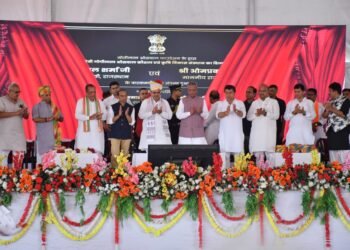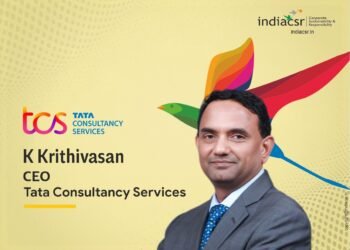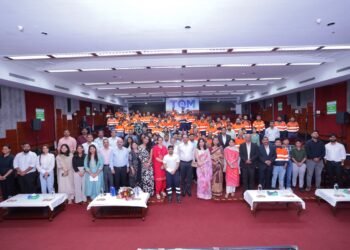Tata Steel’s MD, TV Narendran, sheds light on the transformative journey of the industry towards a sustainable future, emphasizing the pivotal role of recycling, technological innovation, and diversified skill development.
The steel industry, a cornerstone of modern development, is at a crossroads, with recycling poised to eclipse mining in the coming decades. This future perspective was presented by TV Narendran, Managing Director of Tata Steel, at the 50th National Management Convention by AIMA, where he explored the future trajectory of steel production, its environmental implications, and the subsequent changes in employability landscapes in India.
Steel’s Ever-Present Demand
Steel, a vital commodity, continues to outstrip the usage of other metals by forty times, owing to its affordability and versatility. Despite technological advancements, the demand for steel remains unprecedented, requiring innovations in production methods to meet global needs while mitigating environmental impacts.
The Carbon Footprint Dilemma
Traditional steel production methods, reliant on coal, contribute significantly to the world’s carbon footprint, constituting 8% of the global total. These environmental ramifications have propelled the industry to explore sustainable alternatives, with steel recycling and hydrogen-based energy sources emerging as promising solutions to reduce carbon emissions.
The Recycling Revolution
TV Narendran envisions recycling as the future mainstay of the steel industry, potentially surpassing mining in the next 20-30 years. He emphasizes the necessity of sowing seeds for future sustainable businesses, advocating for a balanced approach to short-term gains and long-term visionary goals, especially for multi-generational organizations like Tata Steel. The forward-thinking approach is critical for preserving the legacies of such corporations for ensuing generations.
Technological Transformations
The steel industry is undergoing a technological metamorphosis, leveraging innovations to optimize costs and enhance customer experiences. With the advent of remote operations and other technological advancements, the industry is on the brink of a revolutionary transition that could redefine production methodologies and operational efficiency.
Reimagining Employability
Narendran highlighted the need for a paradigm shift in India’s approach to employability, promoting the integration of vocational skills along with conventional academic degrees. Drawing inspiration from Europe and Australia, where vocational skills receive substantial recognition, he championed the inclusion of vocational training early in the education system, challenging the prevailing academic-centric focus in India.
Talent Acquisition Challenges
Legacy industries are grappling with the intricacies of talent acquisition, necessitating learning from successful entities like ISRO, known for its cadre of world-class scientists. The private sector must glean insights from such organizations to navigate the challenges and opportunities present in the evolving employment landscape.
Copyright@ India CSR























